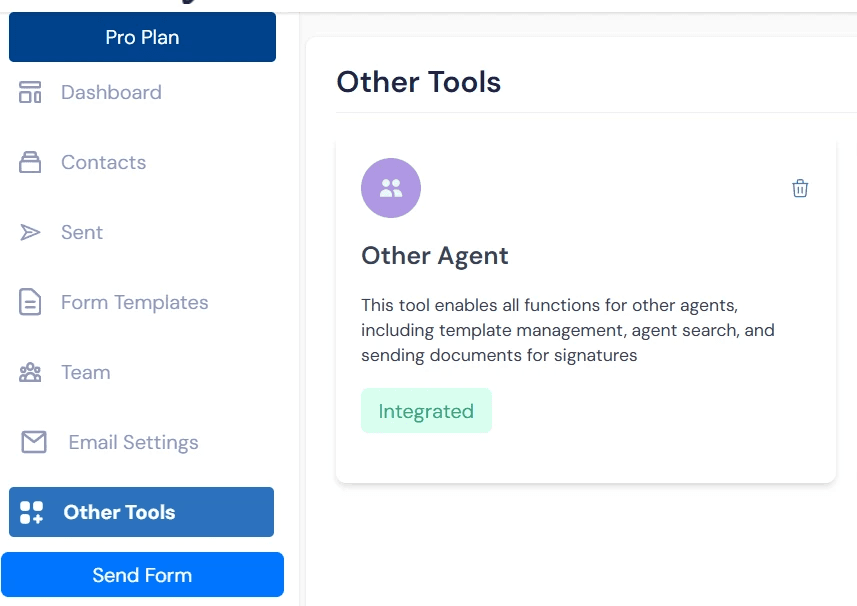TCPA Compliance Made Easy: How AORforms Helps You Stay Within Business Hours
Introduction
The Telephone Consumer Protection Act (TCPA) is one of the most important regulations for businesses that use calls or text messages for marketing. Non-compliance can lead to hefty fines and lawsuits. At AORforms, we’ve introduced new features to help you stay compliant effortlessly; especially when it comes to sending messages during allowable hours.
What is the TCPA and Why Does It Matter?
The TCPA, enacted in 1991, regulates telemarketing calls, SMS marketing, and certain automated communications. Its goal is to protect consumers from intrusive or unwanted messages. Violations can result in penalties ranging from $500 to $1,500 per message or more with stricter state laws, plus potential class-action lawsuits.
Key TCPA Time Restrictions
Allowed Hours: Marketing calls and texts can only be sent between 8:00 AM and 9:00 PM local time of the recipient.
Why It Matters: Sending outside these hours can trigger lawsuits, even if the recipient opted in.
State Laws: Some states impose stricter limits, so always check local regulations.
New AORforms Features for Compliance
✅ Business Hours Restriction: Automatically prevents sending messages outside 8:00 AM – 8:00 PM based on recipient’s local time.
✅ Weekend Blocking: Option to restrict marketing messages on Saturdays and Sundays.
✅ Time Zone Awareness: Our system uses recipient data to ensure messages are scheduled correctly.
✅ Customizable Settings: You can fine-tune allowable hours for your communications to align with both TCPA and stricter state rules.
Override Options for Special Cases
While TCPA compliance is critical, we understand that some businesses may need flexibility for urgent communications or special circumstances. AORforms provides override settings that allow you to:
Allow Sending SMS and Voice Consent Calls on Weekends: For businesses that need to reach customers during weekends for critical updates.
Override and Send Anyway: When sending a document for signing outside of business hours, you can choose to bypass restrictions.
Schedule SMS or Calls to Send Later: If you prefer compliance but want to prepare messages in advance, schedule them for the next allowable window.
Best Practices for Using Overrides
Use Sparingly: Overrides should only be applied for critical or time-sensitive communications.
Document Reasons: Keep a record of why an override was used for compliance audits.
Notify Recipients: Ensure messages sent outside normal hours are relevant and respectful.
Review Regularly: Audit override usage to maintain compliance and prevent misuse.
Watch how to override default Business Hour settings in AORforms.
Transactional vs Marketing Messages
TCPA treats transactional messages differently from marketing messages. Transactional messages are allowed with prior express consent and must be strictly informational. Examples include:
Appointment reminders: “Your dental appointment is scheduled for tomorrow at 10:00 AM.”
Order confirmations: “Your order #12345 has shipped and will arrive on Tuesday.”
Service updates: “Your internet service will be restored by 3:00 PM today.”
Billing notifications: “Your payment of $75 was successfully processed.”
Delivery alerts: “Your package is out for delivery and will arrive today.”
Document signing: A message that includes a link for a client to sign B2C documents is considered transactional if it contains no promotional content and relates to an existing business relationship.
Stricter State Laws You Should Know
Several states have enacted laws that go beyond TCPA requirements. Here are some examples. Be sure to check individual states in which you do business.
Florida (FTSA): Requires express written consent for automated marketing texts and calls, limits contact attempts to 3 per 24 hours, and imposes penalties up to $1,500 per violation.
Texas (DTPA): Broad interpretation of autodialers, requires clear verifiable consent, and allows private lawsuits with multiplied damages under consumer protection laws.
Georgia (SB 73): Provides private right of action, removes intent requirement, allows class actions, and fines up to $1,000 per violation.
Other states like New York, Connecticut, Maryland, and Washington also impose stricter rules, including narrower time windows (e.g., 8 AM–8 PM) and higher penalties (up to $20,000 per violation).
International Anti-Spam and Communication Laws
Beyond TCPA and U.S. state laws, businesses must comply with international regulations when communicating with clients globally:
CASL (Canada): Requires express or implied consent for commercial electronic messages, clear sender identification, and an unsubscribe mechanism in every message.
PECR (UK): Requires opt-in consent for marketing texts and emails, similar to EU ePrivacy rules.
Spam Act 2003 (Australia): Prohibits sending commercial electronic messages without prior consent and mandates accurate sender identification and unsubscribe options.
Unsolicited Electronic Messages Act (New Zealand): Requires consent and clear identification for all commercial messages, similar to Australia’s Spam Act.
ePrivacy Directive (EU): Works alongside GDPR, requiring prior consent for marketing communications and strict opt-out mechanisms.
Why This Matters for Your Business
These features reduce risk, protect your reputation, and help you avoid costly penalties. Plus, they show your customers that you respect their time and privacy.
Final Thoughts
TCPA compliance isn’t optional—it’s essential. With AORforms’ new scheduling safeguards and override flexibility, you can focus on growing your business while we help you with tools to stay compliant.
Reminder: AORforms users must always have consent to contact their client for business purposes as per our Terms and Conditions.
Subscriber Obligations Summary: Subscribers must ensure all use of AORforms complies with applicable laws and regulations, including CASL, PIPEDA, TCPA, GDPR, and carrier rules. They are solely responsible for obtaining and maintaining legally required consent from clients before sending any communication and must keep verifiable proof of such consent. Any compliance attestation within the platform is a binding legal representation, and the Service must never be used for illegal, fraudulent, or spam activities.
Copyright 2025 All Rights Reserved - EGraph Signature and Forms Inc.
sales@aorforms.com | 1-888-854-9139



